This article was co-authored by Jai Flicker and by wikiHow staff writer, Danielle Blinka, MA, MPA. Jai Flicker is an Academic Tutor and the CEO and Founder of Lifeworks Learning Center, a San Francisco Bay Area-based business focused on providing tutoring, parental support, test preparation, college essay writing help, and psychoeducational evaluations to help students transform their attitude toward learning. Jai has over 20 years of experience in the education management industry. He holds a BA in Philosophy from the University of California, San Diego.
wikiHow marks an article as reader-approved once it receives enough positive feedback. In this case, 100% of readers who voted found the article helpful, earning it our reader-approved status.
This article has been viewed 143,190 times.
Becoming a freshman in high school can be overwhelming, because it’s a big step in your life. However, it’s also an exciting transition. You’re finally getting to high school, which means new friends, more privileges, and new opportunities for exploring who you are. High school has a lot to offer, so try to focus on the positives of starting fresh at your new school. Beginning high school is easy if you learn about your high school, plan for your first day, and get off to a great start.
Steps
Learning About Your High School
-
1Visit the school’s website. Your high school’s website will provide a lot of great information about what the school looks like, what the school is best at, and what types of programs the school has to offer. You can look for clubs you might be interested in joining, and you can check out photos of the school itself.
- Some schools have staff sites, so you can check out your teachers once you receive your schedule.
- See if you can find an events calendar. Try to get yourself excited about the new experiences you’ll have.
-
2Go to freshman orientation. If your school has a freshman orientation, be sure to attend. You’ll get to see your school before classes are in session and without the crowds of upperclassman. You’ll likely meet some of your teachers and fellow students, as well as a few upperclassmen who volunteered to help new students adjust to the campus.[1]
- Try to make a few new friends at orientation.
- Ask the upperclassmen volunteers how you can ask questions if you need more information.
- See if your school has a school store or a booster club that is selling school apparel.
- Practice opening your locker.
- Visit the library, gym, and cafeteria.
Advertisement -
3Ask to visit the school. If you can’t go to an orientation, call the school to ask if you can visit and look around before school starts. Most schools are happy to accommodate incoming students who want a quick tour of their new school. Remember, your school’s staff wants you to be happy and comfortable, so don’t hesitate to call and ask.[2]
- Say, “Hi, I’m going to be a freshman this year, and I’m nervous because I’ve never been inside the high school. I was wondering if I could come tour the school sometime this week.”
- Get a map of the school and familiarize yourself with it.
-
4Talk to your older friends or siblings. You may have older friends and siblings who are already in high school. Ask them about their first year, what they like about high school, and what you can expect. Most of them will be able to offer you tips for a successful freshman year.
- Ask for advice on the topics that scare you most. Say, “I’m nervous about lunch. How did you find a table to sit at?”
- See if they will show you around or introduce you to their other friends.
- Ask them about clubs you can join or events you should attend.
-
5Check out your school on social media. Many high schools have social media accounts that they use to promote the activities on campus, especially extracurriculars. Visit your school’s accounts on sites like Twitter and Facebook to get familiar with the school’s popular events and see photos of your future classmates.
Planning Your First Day
-
1Pick out an outfit that makes you look cool and confident. Make sure that you don’t pick clothes that make you uncomfortable. You don’t want to be limping in pinchy shoes after the first two periods. Instead, choose something that you know looks great but also feels comfy. If you feel good about yourself, it’ll show as confidence.[3]
- Choose comfortable shoes.
- Pick your most flattering outfit, as long as it’s not uncomfortable.
- Try to show off who you are so that your new classmates can learn about you.
- Choose a shirt that shows off your favorite band, a leather jacket for a rocker look, or a dress to show off your girly side.
-
2Make plans with friends. If you already have friends at your high school or are in contact with people you met at orientation, talk or text with them to plan possible meetups on your first day.
- See if any of you have the same lunch so that you can sit together.[4]
- See if you have any classes together or classes in the same hall.
- Suggest ways to touch base with each other, such as places you can talk between classes or times you can text or snapchat.
-
3Look up your classes on the school map. See where your classes are located so that you’ll have a good idea about how to get to each one of them. That way when you get to school on your first day, you won’t have to worry as much about getting lost or being late to class.[5]
- Plan your path between classes.
- Look for bathrooms near each class so you’ll be prepared when you need to go.
- If your school has teacher websites, look up your teachers. You’ll learn a bit about them in advance, and you’ll get an idea about what to expect from the class.
-
4Prepare the night before. Set out your clothes and pack your backpack. If you plan to bring snacks or your lunch, prep your food the night before as well. Have your breakfast ready to go. Get everything ready so that you’ll have a smooth, easy morning.[6]
- Bring protein or granola bars for snacks.
- If you like to bring a lunch, pack a sandwich, fruit, and a side like chips or carrot sticks. You could also try tuna salad or mixed greens.
Getting a Great Start
-
1Make friends. Making new friends can make your high school experience better, especially in the beginning. Your new friends can help you navigate the school, and they’ll ensure that you have someone to talk to in each class and during lunch.[7]
- To make friends, smile and start a conversation to your classmates. When you get to your class, try and start one by saying something like, “I really wish this school had a Starbucks,” “Man, I was hoping not to do any real work on the first day,” or “Hey, that’s a cool backpack.”
- Try to make friends with upperclassmen because they can help you fit into your new school and give you advice. Say, "Hey, I'm Jenna. I'm new here," or "You seem to know a lot about the school. Which clubs would you recommend?"
-
2Join a club. Clubs are one of the best parts of high school. There are a ton of options, and it’s easy to start your own if you have a cool idea. Clubs will help you make friends and be part of the school culture. You’ll feel at home in your new school in no time.[8]
- Look on your school’s website for clubs that seem interesting. You may even be able to contact the sponsor.
- Keep an eye out for flyers since a lot of clubs will be advertising for membership in the early weeks of school.
- Ask your friends which clubs they might join. Tag along to see if it’s a fit for you.
-
3Go to school events. Sports games, dances, pep rallies, and other school events offer you a chance to hang out with your classmates, which could help you make more friends. It also shows everyone that you’re making the most of your high school experience.[9]
- Try football or volleyball games early in the year, as these are usually the first sports of the season.
- See if your school has a back to school dance. Attend the homecoming dance and any fall/winter formals.
- Find out if your school has a fall carnival or a related event.
- Go to school plays, band concerts, and art exhibits.
-
4Listen to advice and learn from others. Since high school is a new experience, you can learn from what others have gone through. Listen to the advice of your older friends, and take lessons from what happens to you and your friends.[10]
-
5Go to tutoring. High school classes are harder for many students, so you may find yourself struggling. You also want to remember that your freshman grades will count toward graduation and potential scholarships, so talk to your teacher if you need help.[11]
- Most schools offer after school tutoring, so ask your teacher when to come. Say, “I had trouble following today’s lesson. When can I come to tutoring?”
- You can also email your teacher to ask about tutoring times.
-
6Ask for help. You’ll have a lot of resources for help if you need it. You can talk to teachers, your counselor, the assistant principal, the librarian, and often peer advisors. Don’t hesitate to reach out if you’re confused about something, feel lost, or are having trouble adjusting to high school.[12]
- Make an appointment with your counselor.
- Ask one of your teachers for help, or ask them where you can find peer support.
-
7Work on your time management skills. High school is a lot more demanding than middle school, so you’ll need to keep a tighter schedule. While it might seem like too much at times, it’s preparing you for life. Stay organized so that you can keep up in your classes and still have fun.[13]
- Try using a planner to track your assignments, tests, and club events.
- Budget out your time so that you have enough time to get big assignments finished.
- Don’t commit to too many clubs and sports.
- Make sure that you also have some down time to rest.[14]
- If you'll be entering high school during the COVID-19 pandemic, there's a good chance your school year will involve some distance learning, depending on where you live. If that's the case, you'll need to take responsibility for your own schoolwork and assignments, even more so than if you were enrolled in strictly traditional courses.[15]
Expert Q&A
-
QuestionWhat will high school be like during coronavirus?
 Jai FlickerJai Flicker is an Academic Tutor and the CEO and Founder of Lifeworks Learning Center, a San Francisco Bay Area-based business focused on providing tutoring, parental support, test preparation, college essay writing help, and psychoeducational evaluations to help students transform their attitude toward learning. Jai has over 20 years of experience in the education management industry. He holds a BA in Philosophy from the University of California, San Diego.
Jai FlickerJai Flicker is an Academic Tutor and the CEO and Founder of Lifeworks Learning Center, a San Francisco Bay Area-based business focused on providing tutoring, parental support, test preparation, college essay writing help, and psychoeducational evaluations to help students transform their attitude toward learning. Jai has over 20 years of experience in the education management industry. He holds a BA in Philosophy from the University of California, San Diego.
Academic Tutor As of summer 2020, it's not exactly clear how school is going to go, but it isn't likely to be back completely to normal in the fall. It's really important for students to think more deeply about what they want to learn and what they want to engage in, rather than just coasting along waiting for someone to tell you what to do.
As of summer 2020, it's not exactly clear how school is going to go, but it isn't likely to be back completely to normal in the fall. It's really important for students to think more deeply about what they want to learn and what they want to engage in, rather than just coasting along waiting for someone to tell you what to do. -
QuestionHow do I deal with people who want to be friends with me (only for the 100th time)? They aren't trustworthy, but I'm too nice to be mean. She really doesn't have anyone else but she starts drama :(
 Community AnswerBe nice but set boundaries. You can be friendly to the person without being their friend. Instead, focus on the relationships that matter to you.
Community AnswerBe nice but set boundaries. You can be friendly to the person without being their friend. Instead, focus on the relationships that matter to you. -
QuestionWhat are a few first day of school lunch ideas?
 Community AnswerA traditional sack lunch such as a sandwich, chips, and fruit is an easy first day lunch option.
Community AnswerA traditional sack lunch such as a sandwich, chips, and fruit is an easy first day lunch option.
Warnings
- If anything goes wrong on the first day (e.g. you get lost or you took an embarrassing fall), don't panic. Remember, the embarrassing part is how you react. Smile it off and carry on with the rest of your day having fun!⧼thumbs_response⧽
- Don't prepare so much to the point you get nervous. Everyone goes through this- you're not alone. Stay calm and do your best!⧼thumbs_response⧽
References
- ↑ http://kidshealth.org/en/teens/starting-high-school.html
- ↑ http://www.greatschools.org/gk/articles/adjusting-to-new-school/
- ↑ http://kidshealth.org/en/kids/back-to-school.html#
- ↑ http://kidshealth.org/en/kids/back-to-school.html#
- ↑ https://childmind.org/article/tips-for-getting-off-to-a-good-start-in-high-school/
- ↑ http://www.greatschools.org/gk/articles/adjusting-to-new-school/
- ↑ http://kidshealth.org/en/teens/starting-high-school.html
- ↑ http://kidshealth.org/en/teens/starting-high-school.html
- ↑ http://www.greatschools.org/gk/articles/adjusting-to-new-school/
- ↑ http://kidshealth.org/en/teens/starting-high-school.html#
- ↑ http://kidshealth.org/en/teens/starting-high-school.html
- ↑ http://kidshealth.org/en/teens/starting-high-school.html#
- ↑ http://kidshealth.org/en/teens/starting-high-school.html
- ↑ https://childmind.org/article/tips-for-getting-off-to-a-good-start-in-high-school/
- ↑ Jai Flicker. Academic Tutor. Expert Interview. 30 June 2020.
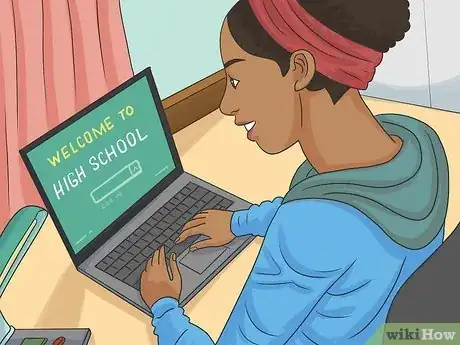
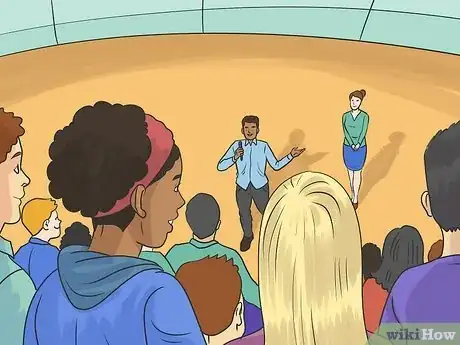



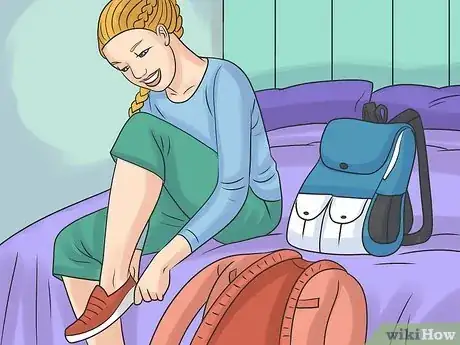
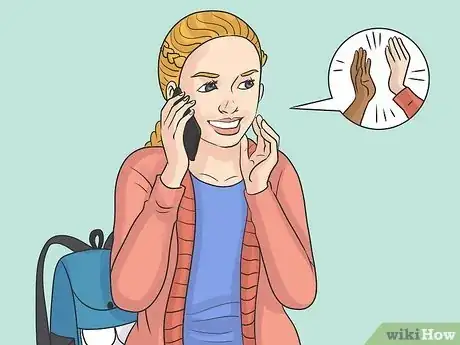
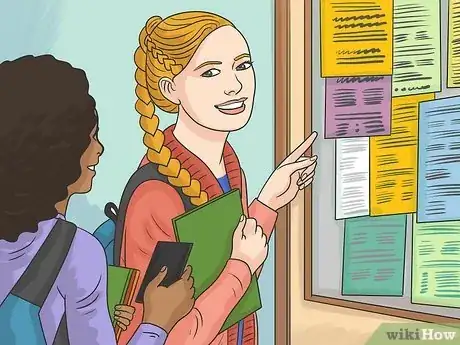


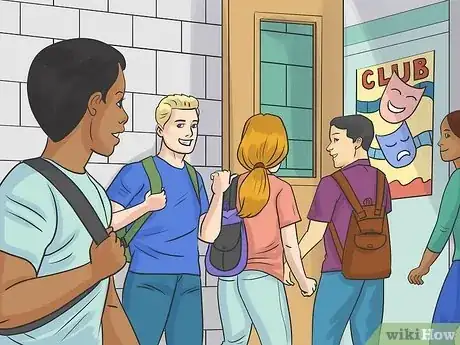
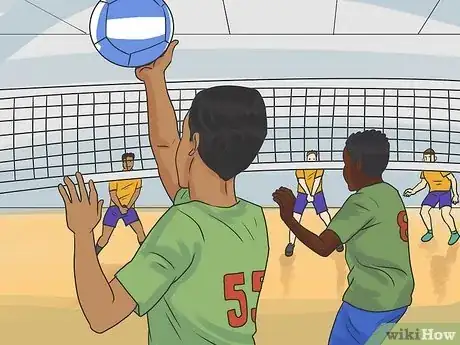
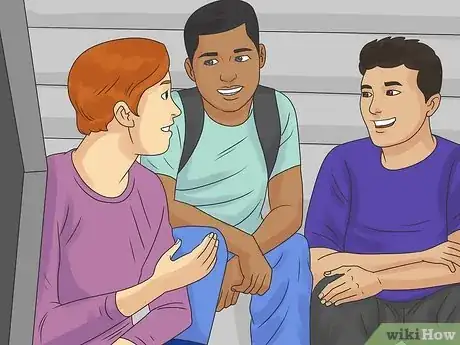
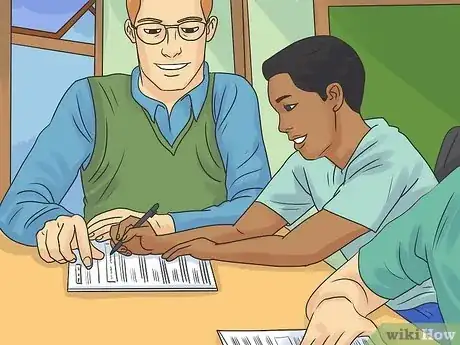

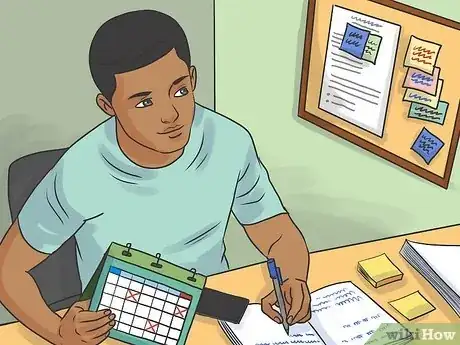

-Step-12.webp)






















-Step-12.webp)





































